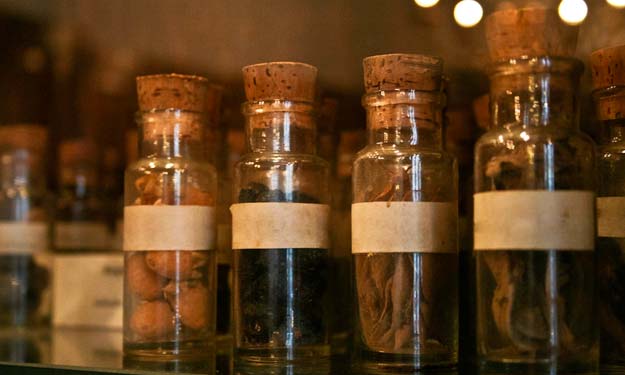10 Herbal Supplements to Avoid
These herbal supplements have been connected through medical research or clinical reviews to potentially serious side effects.
Now, Grandma may swear by it's effectiveness as a home remedy, but the FDA has weighed in on these herbs too- new information shows these herbs are possibly unsafe.
Consumer Reports provided this list of supplements to avoid, compiled from the Natural Medicines Comprehensive Database. The data is from a completely independent research group that measures the safety and the effectiveness of supplements.
10 supplement ingredients have been identified in particular that it said could be dangerous: aconite, bitter orange, chaparral, coltsfoot, comfrey, country mallow, greater celandine, kava, lobelia, and yohimbe.
Potential dangers include liver and kidney damage, heart rhythm disorders and unhealthy blood pressure levels.
It is advised to avoid all the items on this list. Unless it is otherwise noted, many supplements have not shown sufficient evidence to rate their effectiveness for their stated uses.
The products and the dangers listed are not meant to be all-inclusive.
| NAME (also known as) | PURPORTED USES | POSSIBLE DANGERS | COMMENTS |
|---|---|---|---|
| ACONITE (aconiti tuber, aconitum, radix aconiti) |
Inflammation, joint pain, wounds, gout. | Toxicity, nausea, vomiting, low blood pressure, respiratory-system paralysis, heart-rhythm disorders, death. | Unsafe. Aconite is the most common cause of severe herbal poisoning in Hong Kong. |
| BITTER ORANGE (aurantii fructus, Citrus aurantium, zhi shi) |
Weight loss, nasal congestion, allergies. | Fainting, heart-rhythm disorders, heart attack, stroke, death. | Possibly unsafe. Contains synephrine, which is similar to ephedrine, banned by the FDA in 2004. Risks might be higher when taken with herbs that contain caffeine. |
| CHAPARRAL (creosote bush, Larrea divaricata, larreastat) |
Colds, weight loss, infections, inflammation, cancer, detoxification. | Liver damage, kidney problems. | Likely unsafe. The FDA advises people not to take chaparral. |
| COLTSFOOT (coughwort, farfarae folium leaf, foalswort) |
Cough, sore throat, laryngitis, bronchitis, asthma. | Liver damage, cancer. | Likely unsafe. |
| COMFREY (blackwort, common comfrey, slippery root) |
Cough, heavy menstrual periods, chest pain, cancer. | Liver damage, cancer. | Likely unsafe. The FDA advised manufacturers to remove comfrey products from the market in July 2001. |
| COUNTRY MALLOW (heartleaf, Sida cordifolia, silky white mallow) |
Nasal congestion, allergies, asthma, weight loss, bronchitis. | Heart attack, heart arrhythmia, stroke, death. | Likely unsafe. Possible dangers linked with its ephedrine alkaloids banned by the FDA in 2004. |
| GREATER CELANDINE (celandine, chelidonii herba, Chelidonium majus) |
Upset stomach, irritable bowel syndrome, liver disorders, detoxification, cancer. | Liver damage. | Possibly unsafe. |
| KAVA (awa, Piper methysticum, kava-kava) |
Anxiety (possibly effective). | Liver damage. | Possibly unsafe. The FDA issued a warning to consumers in March 2002. Banned in Germany, Canada, and Switzerland. |
| LOBELIA (asthma weed, Lobelia inflata, pukeweed, vomit wort) |
Coughing, bronchitis, asthma, smoking cessation (possibly ineffective). | Toxicity; overdose can cause fast heartbeat, very low blood pressure, coma, possibly death. | Likely unsafe. The FDA warned in 1993 that it was linked to serious adverse events. |
| YOHIMBE (yohimbine, Corynanthe yohimbi, Corynanthe johimbi) |
Aphrodisiac, chest pain, diabetic complications, depression; erectile dysfunction (possibly effective). | Usual doses can cause high blood pressure, rapid heart rate; high doses can cause severe low blood pressure, heart problems, death. | Possibly unsafe for use without medical supervision because it contains a prescription drug, yohimbine. The FDA warned in 1993 that reports of serious adverse events were under investigation. |
| Source: Consumer Reports | |||



